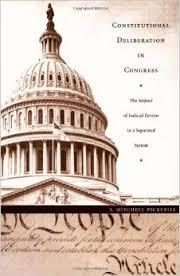
The 2016 Utah legislative session is over and there were a lot of bills that made their way through the legislative pipes, some receiving national interest and support. Medicinal marijuana, anti-vax education and the elimination of the death penalty all progressed far into the session, only to fall short of the support they needed to ultimately be made into law.
While most people were focused on these hot topics, hundreds of other bills quietly made their way through the system and passed into law. Here is a quick run down some of the newest Utah laws.
End of Level Testing and Teacher Evaluations
H.B. 201 prohibits end-of-level testing, or SAGE testing, from being used in teacher evaluations ,and, subsequently, as part of an educator's pay. Instead, the law now requires “a teacher’s summative evaluation to be based on standards of instructional quality.”
Bill sponsor, Representative Marie Poulson (D-Salt Lake City), a former Utah educator, shared statistics where, in some schools, over 70% of parents are opting their children out of SAGE testing with more and more educators leaving or retiring from teaching because of the hardships, unreachable standards and stress placed on them with end-of-level testing. Additionally, these tests are not being uniformly given throughout the district, and several educators, particularly those of younger grade levels, report the struggles of students taking the computer-based tests when the students haven’t fully developed adequate computer skills.
Poulson believes with the removal of the SAGE test reflection, teachers will be more inclined to continue teaching and will feel more valued within their chosen profession.
Representative Rich Cunningham (R-South Jordan), in voicing his support of the Bill, said this was a step in the right direction in bringing the art of teaching back to where it use to be.
The removal of end-of-level testing as part of teacher evaluations will begin with the current 2015-2016 school year.
Juneteeth Holiday Observance
H.B. 338 establishes a new day of observance in the state of Utah. The third Saturday in June, known as Juneteeth, or Freedom Day, honors General Gordon Granger proclaiming the freedom of all slaves, two years after the Emancipation Proclamation was made by President Abraham Lincoln on January 1, 1863. Because of the length of time it took to send and receive messages, General Granger didn’t receive the notice of the executive order until June 19, 1865, while stationed in Galveston, Texas. Once the news was received, Grander declared all slaves free.
“Juneteeth was first observed over 150 years ago and is one of the oldest observed holidays in the United States,” Bill sponsor, Representative Sandra Hollins (D- Salt Lake City) shared with the House Government Operations Committee. Hollins further explained that Juneteen is recognized as a state holiday in 42 states and has been celebrated by local Utah communities for over 75 years.
Juneteenth joins a long list of already established commemorative days, including Vietnam Veterans Recognition Day (March 29), Constitution Day (September 17) and Clean Out the Medicine Cabinet Month (April).
Lawful Commerce in Arms
A Bill sponsored by Representative Justin Fawson (R - North Ogden), explained that the “intent [of this Bill] is to mirror our federal laws [and to] to ensure if something on the federal level, that those challenges would be successful, that these protections” would be in effect on the state level.
H.B 298 limits the liability of manufacturers of guns and ammunitions in certain situations. While it does not provide immunity, it does protect manufacturers from liability if a firearm is used in unintended ways or misused.
Fawson explained to the House Law Enforcement and Criminal Justice Committee by giving the example of firearms manufactured for participation in sports, recreation or hunting, but used in a way contrary to their intended use, resulting in damages, including inflicting harm on an individual.
Fawson reiterated that H.B. 298 is already in federal statute and several other states have also passed laws that mimic the Federal Lawful Commerce in Arms laws.